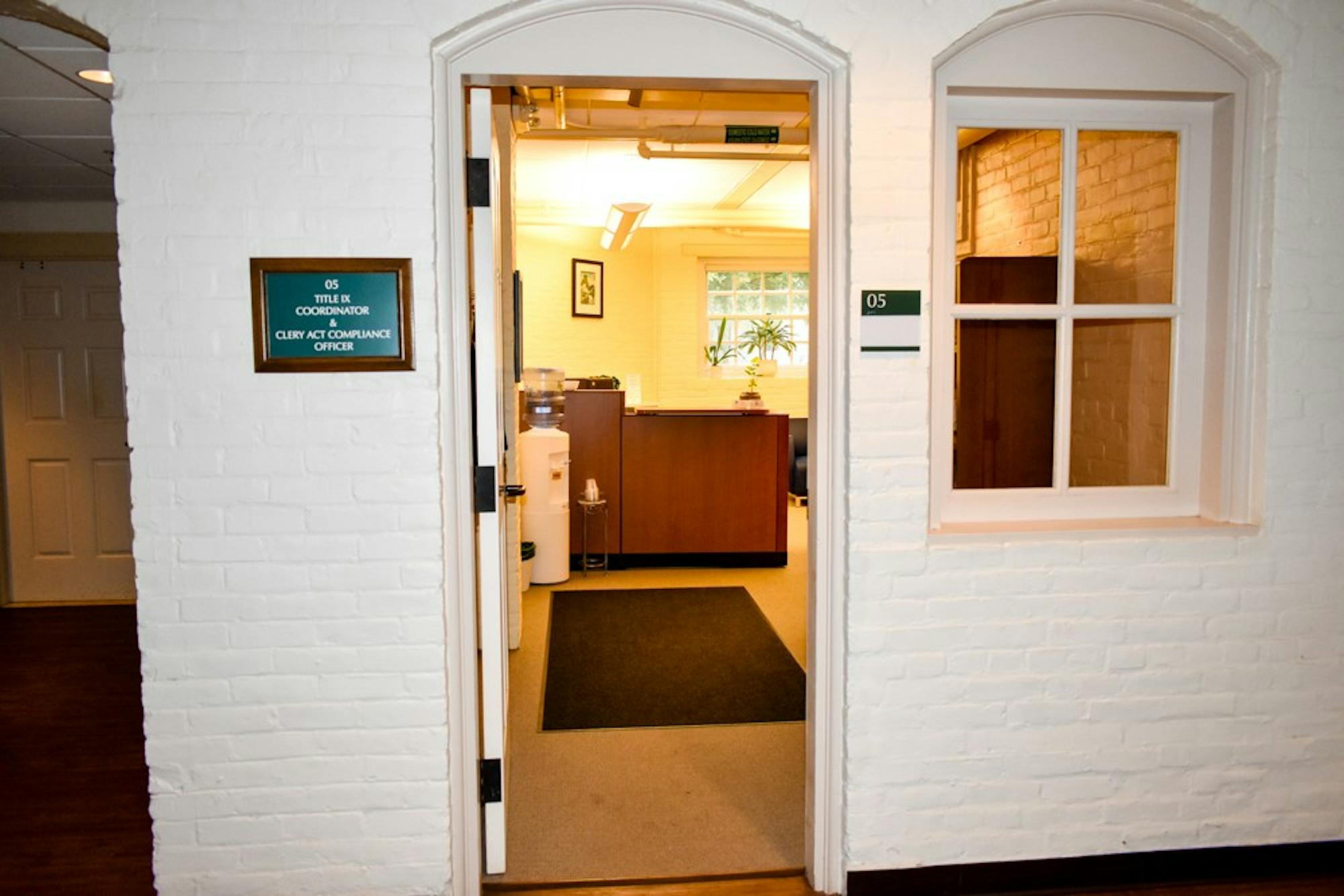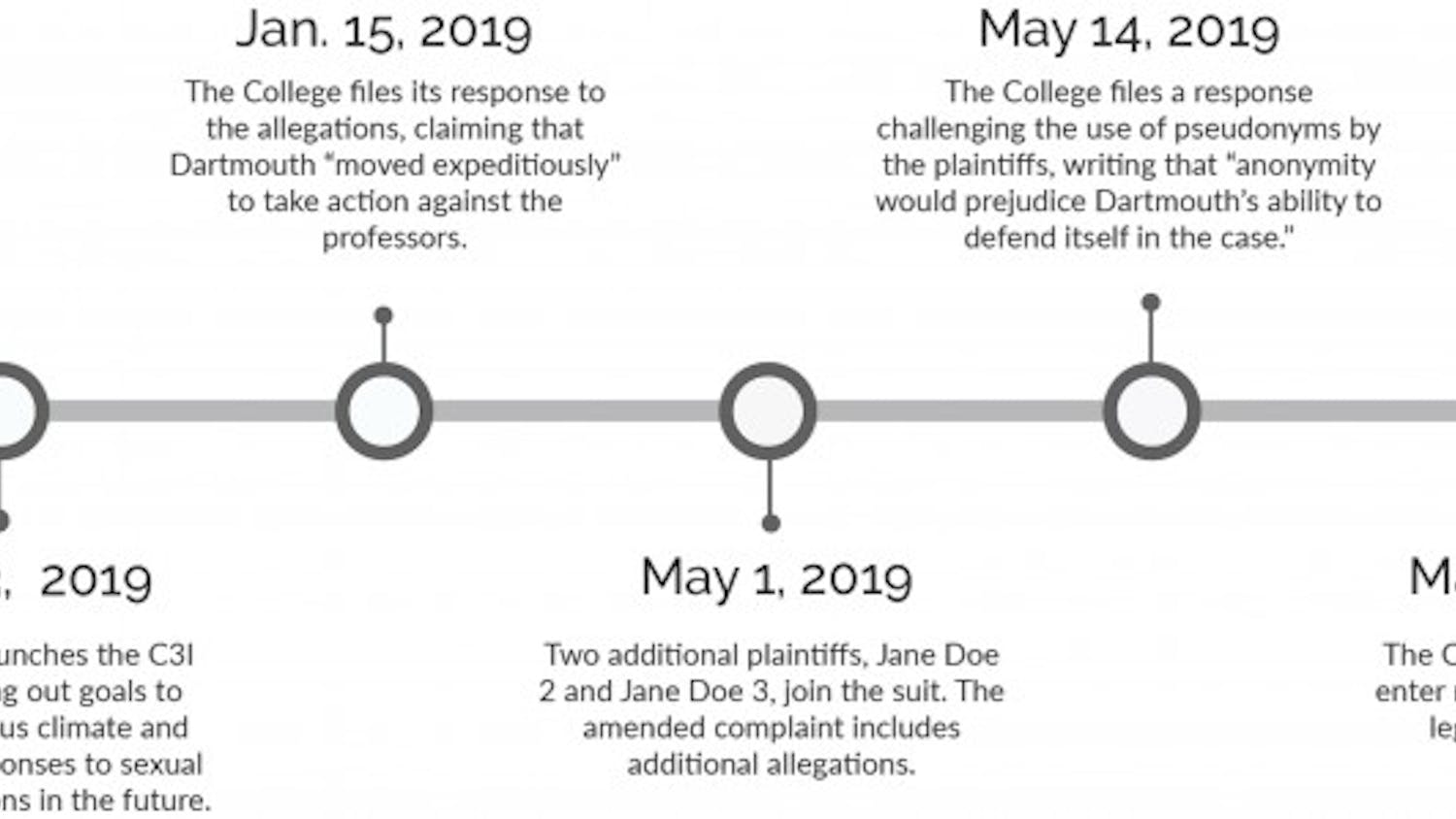Dartmouth’s Sexual and Gender-Based Misconduct Policy, which went into effect on Sept. 1, represents an effort by the College to clarify its stance on sexual misconduct across the institution.
“There’s a difference between having the same kind of core idea and really working out the details and identifying, in a completely clear way, what’s permissible and not,” said philosophy professor and committee on the faculty member Samuel Levey. “We’re hoping this will be the beginning of a big change.”
The policy outlines reporting, investigation and disciplinary procedure for all employees and students at Dartmouth. Previously, the policies for faculty, staff and students were separate and did not contain the level of detail present in the SMP, according to Title IX coordinator Kristi Clemens.
A notable change in the SMP is that both parties have the right to respond to questions posed by a hearing panel and be asked questions by a trained investigator. In this questioning format, the parties do not directly question each other and do not engage in a "live hearing." All questions must be posed at the discretion of the hearing panel, and neither party is required to participate in the hearing — with no negative consequences resulting from the decision not to participate.
The College’s Office of General Counsel formulated a nearly complete draft of the SMP, after which the policy went to the Committee on the Faculty and Committee on Organization and Policy and was amended last November, according to Levey. He estimated about 15 percent of the policy originated in the faculty committees. A draft of the policy was also circulated through the faculty and student body in the spring in order for comments to be made anonymously online.
One point of contention among committee members was determining which standard of evidence to use, according to Levey. He noted that many faculty members argued over the merits of a “clear and convincing” standard as opposed to a “preponderance of evidence” standard.
In the American justice system, civil lawsuits require preponderance of evidence while criminal ones require beyond reasonable doubt. Preponderance of evidence, which is what SMP imposes, constitutes a lesser burden of proof. The SMP requires the Title IX hearing committee to find the accused likely to have done what they are charged with to determine guilt.
There is currently no scheduled day for the policy to go under review, but Levey said if a problem arises, it will be addressed.
“[The SMP] has to be road-tested,” Levey said. “There are a lot of little steps in there and a lot of safeguards, and whether they all end up working exactly as anticipated is a question to be ironed out.”
During first-year orientation, members of the Class of 2023 learned about the new policy in a session held by the Title IX office.
“I think it seems pretty thorough and it’s very clear what is and isn’t okay,” said Emily Hester ’23. “And I think there is a really good support system and reporting network in place that gives the policy a good framework.”
Clemens said the previous policy was outdated and in need of revisions.
“We have a responsibility to have an up-to-date policy that reflects campus attitudes,” Clemens said. “And it’s been five years since any revisions have been made.”
The Title IX office will be holding open office hours during the first weeks of fall term for faculty, staff and students to learn and ask questions about the SMP, Clemens noted. The office’s website also contains graphics that simplify the relatively dense policy, illustrating the disciplinary processes for accusations against faculty, students and staff.
Although prohibited behaviors are the same for all three groups, the processes for when a faculty member, staff member or student are the accused are all slightly different.
“The victim seems to have full control over the level of persecution the office will go for,” said Peyton Gordon ’23. “I think that it does protect victims, but I worry about the stigma victims could obtain.”
Members of the Class of 2023 also attended programming focused on the Sexual Violence Prevention Project, the four-year education experience that aims to reduce gender-based discrimination and sexual assault on campus.
As a part of the Moving Dartmouth Forward initiative, the SVPP’s first-year experience has been in a pilot format for the past three years, according to associate director of the Student Wellness Center Amanda Childress.
According to Childress, who is spearheading the SVPP, the SMP and the SVPP have the same end goal of preventing violence on campus and giving support to those who do experience violence.
“We’re providing fair and equitable processes to make sure we’re holding people accountable when they’re coming into our community,” Childress said. “And we are handling that in ways that ensure we have a campus that’s safe.”
The Class of 2023 will be the first class to experience SVPP programming over the course of the four years at the College. The sophomore-year programming is now in the final stages of development.
Correction appended (Sept. 24, 2019): This article originally stated the parties in a complaint will be cross-examined by a trained professional. It has been updated to reflect that the the questioning process is not done in a live hearing format.
Correction appended (Oct. 2, 2019): This article originally stated that the Committee on the Faculty debated both a "beyond a reasonable doubt" and a "preponderance of evidence" standard. The article has been updated to reflect that the committee debated a "clear and convincing" and "preponderance of evidence" standard.




